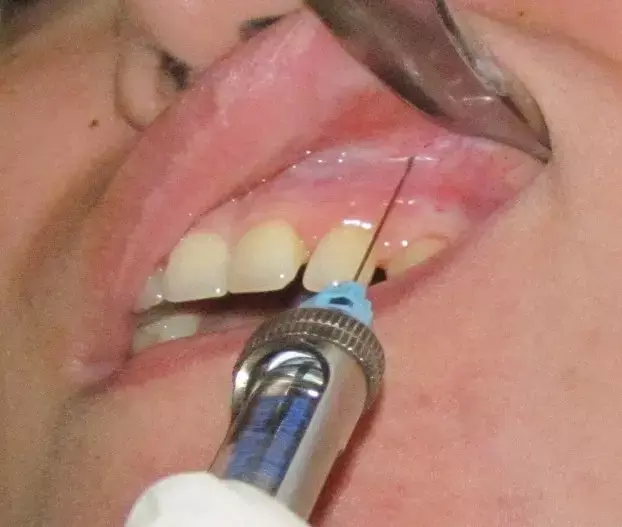- Home
- Medical news & Guidelines
- Anesthesiology
- Cardiology and CTVS
- Critical Care
- Dentistry
- Dermatology
- Diabetes and Endocrinology
- ENT
- Gastroenterology
- Medicine
- Nephrology
- Neurology
- Obstretics-Gynaecology
- Oncology
- Ophthalmology
- Orthopaedics
- Pediatrics-Neonatology
- Psychiatry
- Pulmonology
- Radiology
- Surgery
- Urology
- Laboratory Medicine
- Diet
- Nursing
- Paramedical
- Physiotherapy
- Health news
- Fact Check
- Bone Health Fact Check
- Brain Health Fact Check
- Cancer Related Fact Check
- Child Care Fact Check
- Dental and oral health fact check
- Diabetes and metabolic health fact check
- Diet and Nutrition Fact Check
- Eye and ENT Care Fact Check
- Fitness fact check
- Gut health fact check
- Heart health fact check
- Kidney health fact check
- Medical education fact check
- Men's health fact check
- Respiratory fact check
- Skin and hair care fact check
- Vaccine and Immunization fact check
- Women's health fact check
- AYUSH
- State News
- Andaman and Nicobar Islands
- Andhra Pradesh
- Arunachal Pradesh
- Assam
- Bihar
- Chandigarh
- Chattisgarh
- Dadra and Nagar Haveli
- Daman and Diu
- Delhi
- Goa
- Gujarat
- Haryana
- Himachal Pradesh
- Jammu & Kashmir
- Jharkhand
- Karnataka
- Kerala
- Ladakh
- Lakshadweep
- Madhya Pradesh
- Maharashtra
- Manipur
- Meghalaya
- Mizoram
- Nagaland
- Odisha
- Puducherry
- Punjab
- Rajasthan
- Sikkim
- Tamil Nadu
- Telangana
- Tripura
- Uttar Pradesh
- Uttrakhand
- West Bengal
- Medical Education
- Industry
Tramadol hydrochloride as effective as lidocaine hydrochloride with adrenalin for providing anesthesia for extraction of maxillary bicuspids: Study

Tramadol hydrochloride as effective as lidocaine hydrochloride with adrenalin for providing anesthesia for extraction of maxillary bicuspids suggests a study published in the Journal of Oral and Maxillofacial Surgery.
Tramadol hydrochloride (T-HCl) has demonstrated to have a local anesthetic effect similar to lidocaine hydrochloride (L-HCl) when administered locally for minor oral surgical procedures. The study aimed to compare the anesthetic effect of T-HCl versus L-HCl in maxillary premolar extraction. The study is a split-mouth, double-blind randomized clinical trial at the Faculty of Dental Sciences, Ramaiah University of Applied Sciences, Bengaluru, India. The study sample was composed of patients referred for maxillary bicuspid extraction. Patients were excluded from the sample if, allergic to the study drugs, pregnant or lactating females, and smokers. The variable is an anesthetic drug administered for local anesthesia and it is grouped into 2 categories, T-HCl and L-HCl. A supraperiosteal infiltration of T-HCl with adrenaline on one side and L-HCl with adrenaline on the contralateral side was injected.
The primary outcome variable was profound anesthesia of T-HCl, where the patient sensed the loss of sensation of touch, temperature, and pain. Secondary outcomes were onset and duration of anesthesia, intraoperative pain, postoperative analgesia, and adverse reactions, were recorded. Inferential statistics, the χ2 Test, the Mann–Whitney Test, and the Wilcoxon signed-rank test were used to compare the parameters. The level of significance was set at ≤ 0.05. Results: A total of 40 patients were included, and 80 teeth were extracted. Profound anesthesia was achieved in all the cases. The mean subjective duration of anesthesia in the T-HCl and L-HCl groups was 130.80 ± 20.01 minutes and 111.40 ± 14.87 minutes, respectively, with a P value of .001. The mean Visual Analogue Scale (VAS) score for pain during the procedure in the T-HCl and L-HCl groups was 0.60 ± 0.67 and 1.10 ± 0.71, respectively, with a P value of .002. The mean Visual Analogue Scale score for pain postoperatively in the T-HCl and L-HCl groups was 0.70 ± 0.72 and 1.40 ± 0.67, respectively, with a P value of .001. Six patients in T-HCl required postoperative analgesia when compared to 18 patients in L-HCl (P value < .003). T-HCl provides similar anesthetic outcomes in the extraction of maxillary bicuspids as L-HCl.
Reference:
Raju Kr Y, Sagar P, Prasad K, Shridhar P, Ranganath K. Comparative Evaluation of the Local Anesthetic Action of Tramadol Hydrochloride With Adrenaline Versus Lidocaine Hydrochloride With Adrenaline for Maxillary Exodontia: A Randomized Control Trial. J Oral Maxillofac Surg. 2024 Apr;82(4):478-484. doi: 10.1016/j.joms.2023.12.009. Epub 2023 Dec 22. PMID: 38182119.
Dr. Shravani Dali has completed her BDS from Pravara institute of medical sciences, loni. Following which she extensively worked in the healthcare sector for 2+ years. She has been actively involved in writing blogs in field of health and wellness. Currently she is pursuing her Masters of public health-health administration from Tata institute of social sciences. She can be contacted at editorial@medicaldialogues.in.
Dr Kamal Kant Kohli-MBBS, DTCD- a chest specialist with more than 30 years of practice and a flair for writing clinical articles, Dr Kamal Kant Kohli joined Medical Dialogues as a Chief Editor of Medical News. Besides writing articles, as an editor, he proofreads and verifies all the medical content published on Medical Dialogues including those coming from journals, studies,medical conferences,guidelines etc. Email: drkohli@medicaldialogues.in. Contact no. 011-43720751


